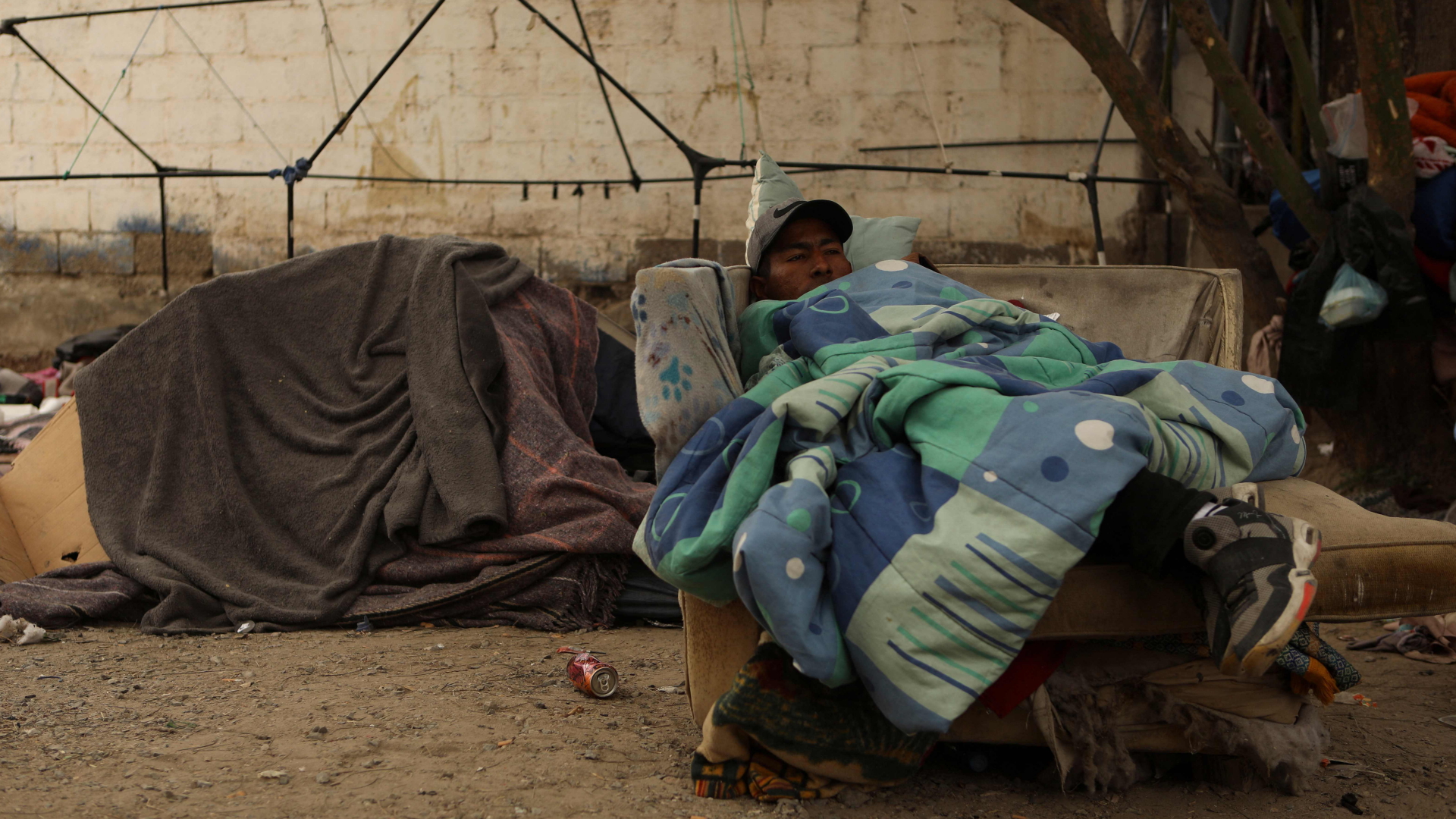Status: 29.12.2022 09:10 am
Temperatures hovering around freezing: Thousands of migrants wait at the Mexican border to enter the United States. But the controversial “Title 42” deportation regulation stands in their way.
It’s unusually quiet on the Mexican border in the city of Ciudad Juárez. No one can be found here on the banks of the Rio Grande River, which geographically separates the United States and Mexico. Disbelief seems to be spreading since it became clear that the border will remain closed for the time being.
Johnny Castillo is also frustrated. Arrived in Ciudad Juarez, Venezuela at the end of November. He is awaiting asylum in the United States. “They play with the immigrants, make fun of them,” says Castillo. “They have their own politics in America. But they play with us as parents who want to work and fight to give their children a better future.”
A view of cargo containers set up as a barrier by US authorities along the banks of the Rio Grande in Ciudad Juarez, Chihuahua state, Mexico.
Image: AFP
Overcrowded dormitories
Desperation comes with coldness. Winter storm “Elliot” swept across the United States on Christmas Day and was felt as far as the Mexican border. Many refugees sleep outside, poorly equipped with blankets and sleeping bags. And night temperatures are freezing. Hostels and hostels are overflowing.
Carly Caldera got another spot. She also left Venezuela with her father, mother, uncle and son. She wants to be confident. “The saying goes: hope dies last,” says the 22-year-old. “With God’s help we will put this nightmare behind us.”
NGO Racismo MX: “Title 42” discriminates twice
In March 2020, then-US President and immigration hardliner Donald Trump introduced “Title 42”. This restriction allows US officials to turn away people at the border. Millions of people have been deported in this way. Reason: To protect against coronavirus. A pretext, aid agencies criticize.
People are discriminated against twice, says Otto Castillo of the NGO Racismo MX. “Title 42′ has established the image that some people are threatened not only by their looks but also by their bodies, and that’s racist.”
Hundreds of refugees arrive in Ciudád Juarez every day seeking asylum in the United States. After all, people from Venezuela and Central American countries such as Honduras, Cuba and El Salvador make the difficult journey.
The Supreme Court will decide in February
Johnny Castillo travels through the Darien jungle to northern Mexico. The route on the border of Colombia and Panama is considered one of the most dangerous places in South America.
This isn’t the first winter where the 52-year-old hasn’t had a secure future. He left his home in Venezuela eight years ago. He doesn’t want to give up: “If you run breakfast in Venezuela, you won’t have enough money for lunch and dinner,” says Castillo. “I’m sticking to my plan, no matter what.”
The U.S. Supreme Court doesn’t intend to take up the extradition clause again until February at the earliest. For refugees like Johnny Castillo, winters are not only too cold, but too long.
Mexico: Immigrants continue to wait in the cold for asylum applications
Christina Fee Moebus, ARD Mexico, 29.12.2022 8:07 am

“Amateur coffee fan. Travel guru. Subtly charming zombie maven. Incurable reader. Web fanatic.”







More Stories
In “Cash for Rares” he reveals his plans
The DFB women face a tough fight against heavy favorites USA
Who is showing/broadcasting France vs USA (Olympia) live today on live stream and TV?